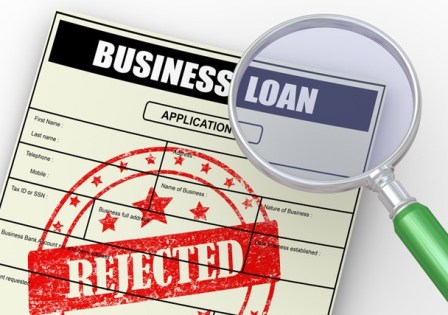Whether you are a small or a large one, you will need a loan at the start to finance your marketing efforts and operations. It is not that difficult for large businesses to get loans from banks because most lending institutions are more than willing to invest in large corporations due to their dominant position in their market and industry. On the other hand, small businesses do not occupy a key position in the industry, and that’s why banks and other lending entities aren’t intrinsically interested in financing them. However, there can be several different reasons why banks rejecting small business loans. Here are the most common ones.
Reasons for Banks to Refuse Loans to Small Businesses
Short History of Operations
The period a business has been in operation is the number one factor banks consider when deciding on approving a loan or not. Small business owners have to finance their ventures right from the beginning. They might not have even completed six months before they start looking for loan options.
Bank want to see how well or poorly a business has been performing, and it can judge the performance based on the tax filing record for your business or maybe even the record of your sales. What if the loan amount you are asking for is much larger than what the bank deems is easily repayable for you?
The lenders will look at your cash flow reports and decide how much your business is capable of returning based on the amount you have asked for. The bank would often refuse to approve a loan after realizing that your demand is much bigger than your strength to repay the loan.
Loan Size
The bank is a business, and it has to find ways to maximize its profits. Bankers make most of their money from loans they approve for large corporations. Small businesses, on the other hand, are at a disadvantage in this area. They don’t require huge loans, and thus they are not the best prospects for a bank.
The underwriting process is quite costly for a bank, and it only makes sense for them to approve loans from which they can cover that cost. Most small business loans do not go above the $500,000 mark, and that amount is not what the banks will call “big.”
Personal Credit Score
Several online sources will tell you that your credit score will not have any impact when you ask a bank for a business loan. It makes sense from one perspective that the bank should not look into a person’s personal life while giving them a business loan. However, your credit score can affect your business loan application negatively. Yes, it is true that not all lenders will give the same weight to your credit score, but there are many that will.
For lenders that look into your credit score, they are doing this to know how good you are when it comes to managing money. If you can’t manage your finances, the chances of you mismanaging your business finances will be pretty high too.
Missing Collateral
Again, you have to remember that banks are businesses—giving money to people and getting it back with a profit is their business. Banks require collateral to motivate (or compel) a business owner to return the loan amount. In most cases, collateral is not a problem for large businesses.
The collateral serves as a security for the bank and a way to ensure that they get the loan amount back should the business owner default. On the other hand, small businesses don’t have enough assets to put down as collateral to secure a loan from a bank. The missing collateral is often the reason why banks reject loan applications for small businesses.
Reason for the Loan
The bank won’t approve your loan just because you need it. Lending institutions want you to give them solid reasons for why you need the loan. You would want to show them that your loan amount is going to be an investment in your business and not just an expense.
If you are going to buy new furniture for your office with the loan amount, the chances are that the bank will refuse to give you the loan. However, if you have a strong business plan and a pre-planned marketing campaign that you want to support the loan, a bank will be more than willing to help you out.
But Banks Aren’t the Only Option
The detail that’s crucial for small business owners here is that banks are not the only institutions that can lend to small businesses. You have other lending entities from which you can seek help. For instance, there are online platforms where small business and startup owners can get in touch with investors to get the investment they need.
Small business owners can use such a platform to showcase their idea, business plan, the marketing strategies and the team behind the project to get the attention of the investors. They can get the type of loan that best suits their needs.
If an investor likes your idea and is passionate about it, they might even forward the loan at extremely flexible terms. Keep in mind that such a network gives you access to angel investors—the type of investors that can help a startup turn into an established business without demanding too much equity share in the company. However, you have to be sure that you create a powerful business plan, have a strong team and a compelling pitch to win their trust.
Yes, there can be a variety of reasons why banks reject loan applications from small businesses, but that should not mean the end of everything. With online platforms helping business owners connect with investors, obtaining the right loan is not such a challenging task after all. If your business is in its starting phase, be sure to make obtaining the right loan a priority. Last but not least, it is how you manage your funds that decide the fate of your business, not just the loan itself.
Access our network of Angel Investors, Venture Capital or get instantly matched with a Lender, or get a business plan by visiting us Funded.com

